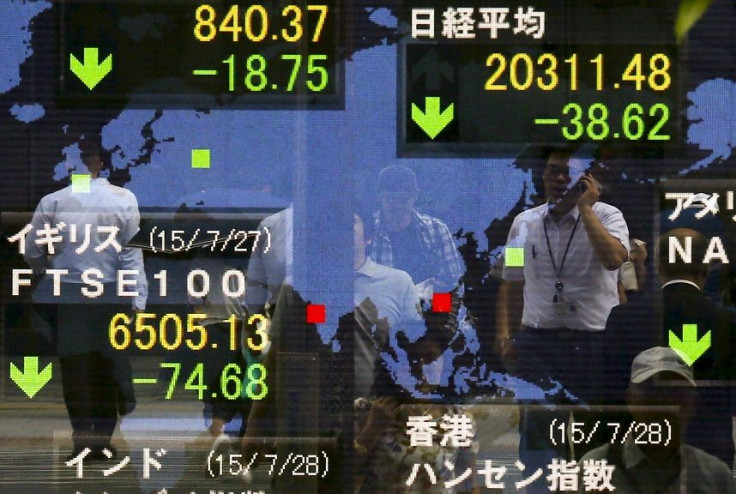Global markets deteriorate as share values continue to fall

The falling value of shares has adversely affected the global economy. Whether it’s China or the United States, the fear of an unhealthy world economy reached a new peak on Thursday.
According to the BBC, Chinese authorities turned their attention to the stock market once again as the share value of the Shanghai Composite Index dropped to 3.4 percent on Thursday. This, following the devaluation of the yuan last week, sparked further uncertainty in the Chinese market, with investors constantly witnessing huge fluctuations in spite of efforts by Beijing to warm the market.
Besides China, the U.S. has also been disappointed with the negative flow of share markets. The Federal Reserve this week said that it would be difficult to hike interest rates in deteriorating economic conditions. The Dow Jones Index fell to 1.6 percent, while Paris and Frankfurt markets dropped by more than two percent.
The U.S. also expressed concern about the predictions of weak inflation due to a strong dollar and dropping commodity prices, which is likely to affect imports negatively. Lord Turner, the former chairman of the Financial Services Authority, told the BBC that a hike in U.S. interest rates and the dollar will have a big impact on the budding market, mostly corporate borrowers.
The FTSE 100 Index of UK also closed by dropping to 0.56 percent.
On Wednesday, minutes of the US Federal Reserve meeting held in July indicated China as a vital problem and said a “material slowdown” in the Chinese economy is likely to affect the U.S. economic sphere.
“The Chinese slowdown is hugely important for the global economy and we can see the impact of this slowly spreading across East Asia, the commodity producers and now reaching a wider set of countries,” Lord Turner told the BBC. “I think what is going on in the industrial sectors of the economy, they maybe actually in recession and the official figures that show there is 7% growth – I think they are simply not credible.”
Contact the writer at feedback@ibtimes.com.au, or let us know what you think below.






